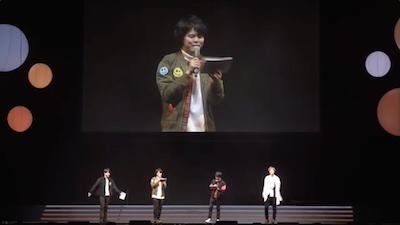I was watching the manga events and came across this line, when the actors said
今年もこのスーパーステージに二人の日向と影山が揃いましたよ!
He was referring to 日向 and 影山, who are the protagonists of the story.
Q1: I know that 二人 means 2 people. However, although there are 4 people on the stage,
2 of them are an actor for 日向 (1 stage actor and 1 voice actor). Similarly, another 2 are
an actor for 影山. Thus I was curious if he was referring to
A: 2 people, who are 日向 and 影山?
or
B: 2 日向 and 2 影山?
Q2: I know that 揃いました is a past tense of 揃う, which seems to have 3 different meanings
based on Jisho.
A: to be complete; to be all present; to make a full set; to be satisfied (of conditions)
B: to be equal; to be uniform; to be even; to match; to agree
C: to gather; to assemble; to be collected
However, because of the confusion from Q1, I'm not so sure about the actual meaning of
揃う in this context.
I'm pretty sure I'm overthinking this, but it would be great if I can get a further clarification..

